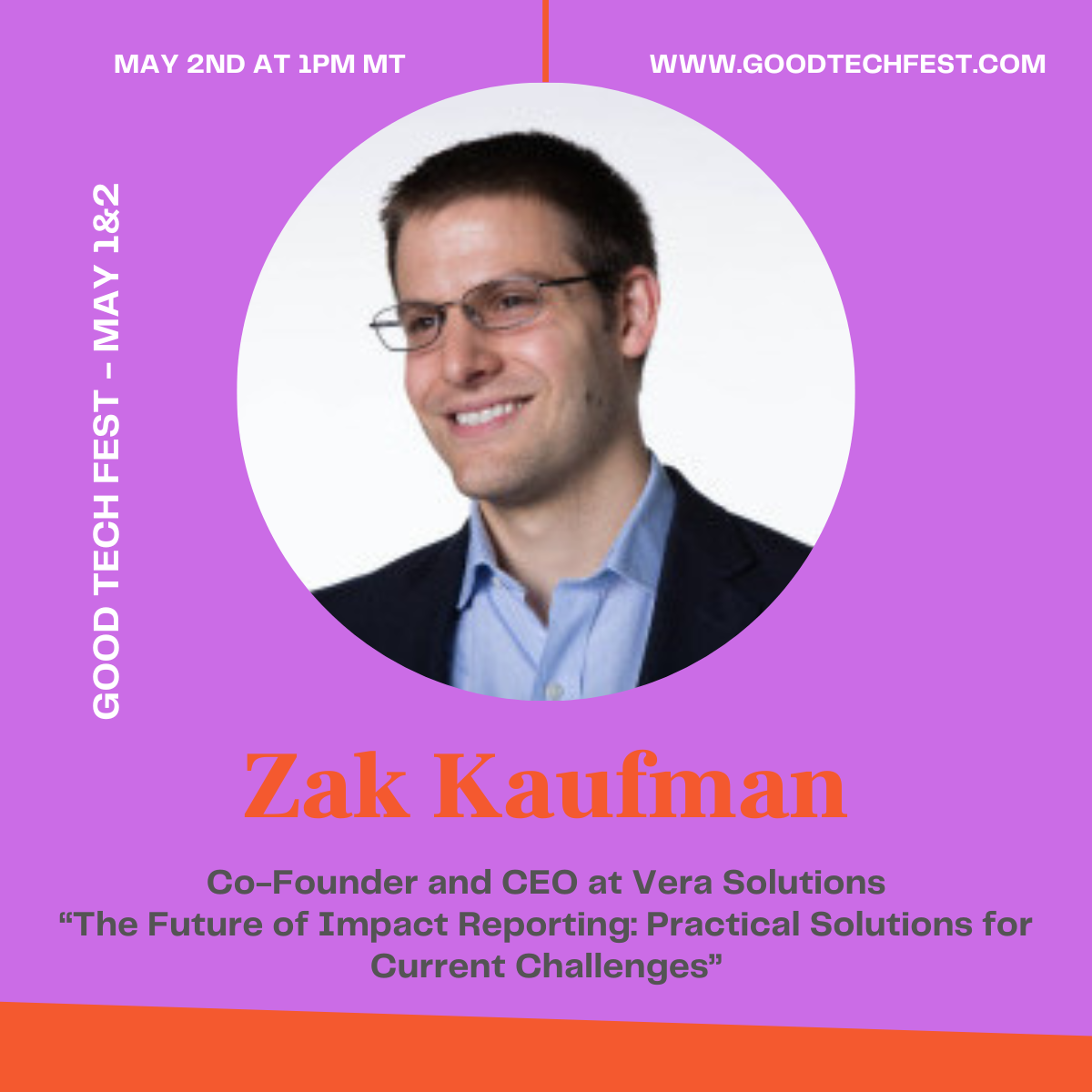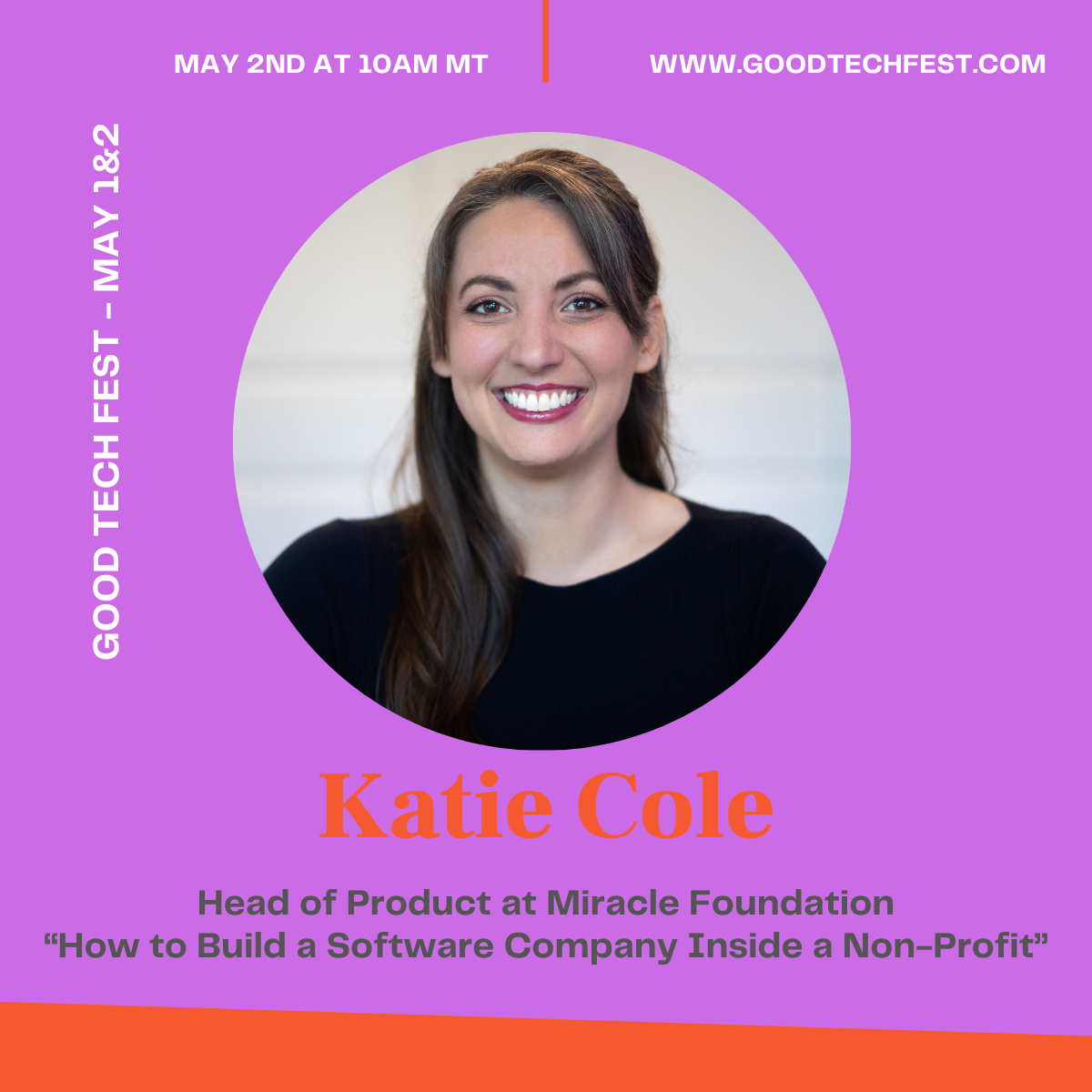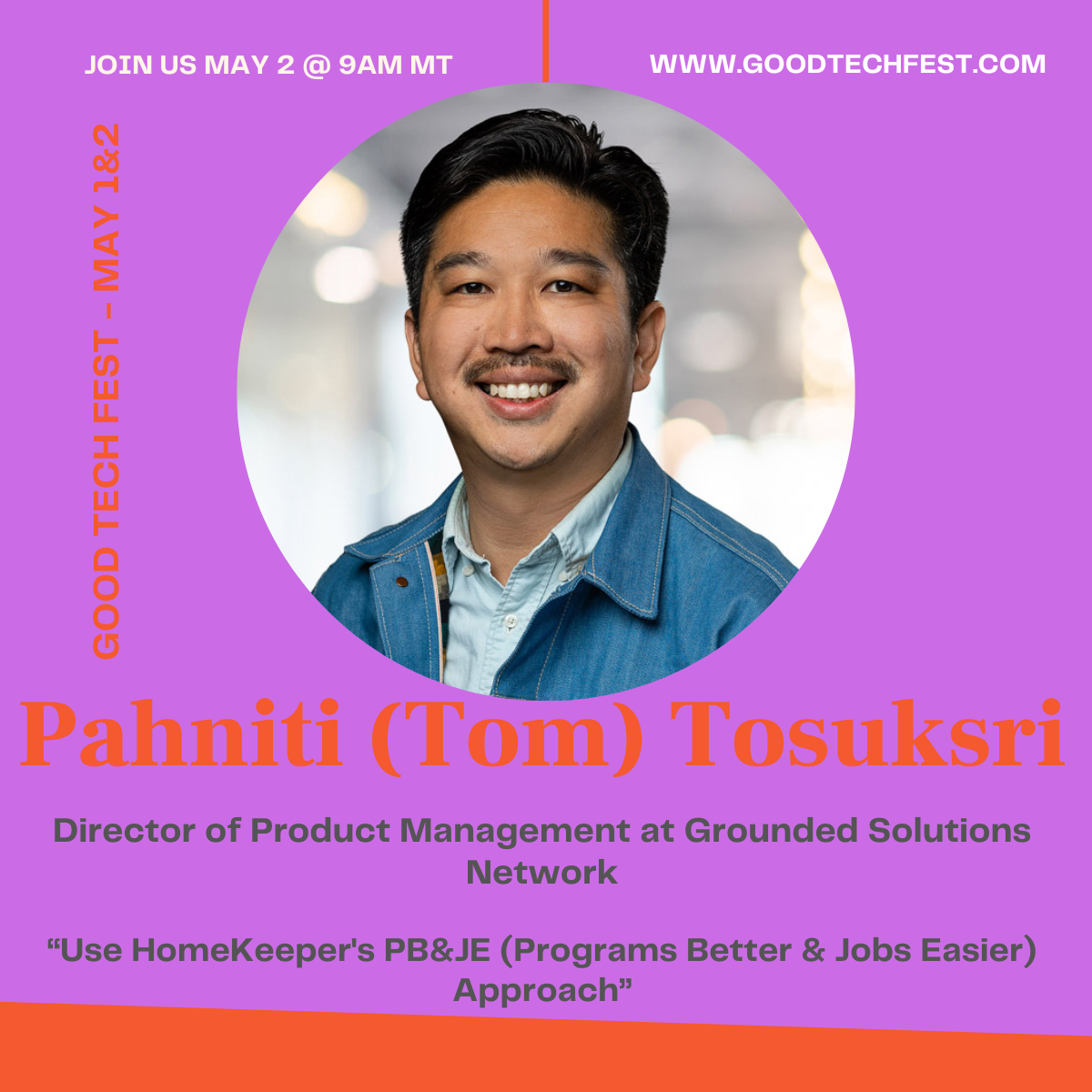Product Development & Management Track

Transforming Nonprofit Operations: Leveraging Product Management Principles for Technological Advancement
In this session, I want to share the product management concepts that can improve the operational efficiency of nonprofit organizations - to drive innovation and improve processes. From optimizing donor engagement to enhancing program delivery, the attendees will discover how product management can catalyze technological advancement in the nonprofit sector.
Takeaways:
1. User-Centric Design for Nonprofit Services - UX design principles and empathy
2. Agile Methodologies for Nonprofit Projects
3. Data-Driven Decision Making for Impactful Programs - Insights and informed decisions.

Technology for Global Good: Four CSR Outcomes Enterprise Companies can Expect After Implementing Social Impact Software
Kyndryl is recognized around the world as a leader in the movement of new companies (including but not limited to technology companies) that are committed to doing good in the world. What are they doing differently? How can other modern companies, as well as legacy brands looking to modernize their approach to corporate social responsibility, learn from Kyndryls approach?
In this discussion, Kyndryl’s Monoswita Saha joins Deed’s Stav Kashi to think about the four cornerstones of responsible business:
1) Prioritizing social impact;
2) Leading on environmental, social, and corporate governance (ESG) in advance of U.S. and E.U. regulations;
3) Authentic, tangible approach to diversity, equity, inclusion, and belonging (DEIB)
4) Employee engagement in workplace giving and volunteering
After providing a unique case study in the form of Kyndryl’s own programs, this session will include a lively Q&A to engage social impact professionals in creative problem-solving.
Here is the direct registration link for the session if you want to share it out.

Using Tech to Connect Unstably Housed Youth to Resources
Beth Malik of the Chicago Coalition for the Homeless and Web/App Developer Stephen Walter of Shine Studio will discuss their partnership resulting in the new and improved Streetlight Chicago Resource App for unstably housed young people 14-24 years old. Beth and Stephen will walk through how youth and community input and engagement lead to the redevelopment of the Streetlight Chicago app and website. They will give participants a tour of the functionalities and features of the tools, illustrating how technology can be used to connect populations and communities in need to vital resources.

The Art of Possible: Innovative Uses of Salesforce in Nonprofit Scholarship Programs
Achieve Atlanta’s commitment to social equity is mirrored in our relentless pursuit of removing educational barriers. Our dynamic use of Salesforce has been central to this mission, allowing us to quickly and efficiently pilot diverse processes tailored to student needs. This presentation will explore how Salesforce has facilitated novel approaches such as streamlined online applications, an option to submit applications via text message, robust data sharing with college partners, and sophisticated communication automations.
Attendees will gain insights into:
1) The construction of a scholar portal within Salesforce, enabling students to resubmit documents and track their scholarship status, ensuring continuous engagement.
2) The development of a flexible application system that adapts to student feedback and evolving organizational needs, illustrating a model for user-centered design in nonprofit technology.
3) Our journey in employing Salesforce to manage complex scholarship cycles, involving the precise disbursement of funds and targeted communication strategies via Pardot.
4) The strategic decisions behind custom Salesforce solutions that have maximized operational efficiency and impact, including Salesforce flows, dynamic lightning record pages and tailored data management processes.

The Future of Impact Reporting: Practical Solutions for Current Challenges
In the world of impact reporting, Funders and NGOs alike grapple with data being siloed, hard to access, and stuck in documents or portals. Organizations spend over 150M hours on impact reporting annually. Additional challenges of reporting requirement overload, interoperability costs, knowledge gaps, and the absence of data standards, all result in a general lack of trust in reported impact data.
In this interactive session, participants will explore a future where organizations can easily and centrally share aggregated impact data with their stakeholders. We’ll discuss and debate whether a single central platform could meet the needs of both implementers and funders, potentially saving the sector millions of person-hours per year.
We will discuss key prerequisites, drivers, and blockers for achieving impact data sharing and publishing at scale. Finally, we will give a short product demonstration at the end of the session, before wrapping up with key takeaways.

Professional Services are Falling Short in Supporting Nonprofits
Professional services are falling short of supporting our nonprofit clients, but we are the key to real long-term change. The current tech-forward approach to providing great tools and systems is not producing sustainable outcomes for true digital transformation. Join Tim Lockie, Founder and CEO of The Human Stack, for an open conversation on how to differentiate your practice and begin to understand the missing ingredient for true transformation, human-centric services.

The Impact of Legal Innovation in accelerating access to justice and Access to legal services
This concise description highlights the transformative power of legal innovation in expediting access to justice and legal services. It suggests that through groundbreaking advancements, such as technological advancements or procedural reforms, the legal landscape is being revolutionized to ensure swift and efficient access to legal support for individuals and communities.

Data Gather: An Open Source Data Entry App Builder for the Social Sector
Have you ever tried building a form with complicated logic and found out it was impossible in Google Forms or other third party solutions? Ever gotten tired of figuring out how to export data and wished your form could connect to your database? Did you try looking up existing open source solutions and felt overwhelmed with how complicated some could be to configure? These were the problems that Wellfare was facing, a NYC-based nonprofit that distributes nutritious groceries to food insecure communities. Data Clinic, the data and tech for good arm of Two Sigma, partnered with Wellfare to build Data Gather, an open source data entry app builder that supports some of the most flexible configurations of any form-building tool.
In this talk we will cover how Wellfare is using Data Gather to distribute food in NYC and explain the features that make Data Gather one of the most advanced data entry tools available, so you can build your own rich data entry flows that can fit right into your organization’s processes.
(For reviewers, links to the app are:
GitHub: https://github.com/tsdataclinic/data-gather
App: https://datagather.tsdataclinic.com/)

One-Way Text Message Appointment Reminders: The Basic Tech Stack Needed
Have you ever wanted to automate sending appointment reminders? We'll cover when is an appointment reminder system should be a good fit, example SMS appointment reminder system tech stack, and compliance considerations of setting up automated appointment reminders to help the community/communities you support.

How to Build a Software Company Inside a Non-Profit
When a child steps into the volatile world of the foster care system in the US, they are thrust into an emotional rollercoaster, passed through an average of 7 different foster homes. Imagine being a child adjusting to 7 different sets of house rules, 7 different beds, and trying to build a relationship with 7 different strangers who you are told are your guardians. The heart-wrenching trauma of being taken away from one's family and thrust into the arms of numerous strangers lays the foundation for devastating outcomes for foster children. This trauma often leads to homelessness, incarceration and even suicide.
In 2021, Miracle Foundation launched a pilot of our first software offering that seeked to reduce child movement within the foster system. Present day, we have two products in production, being used by organizations in three countries, on three different continents.
In this session we will discuss why our non-profit decided to get into the software business, how we are operating it, what we have learned, and what we would like to accomplish in the future.
If your organization is considering building software to scale impact, this session is for you!

Use HomeKeeper's PB&JE (Programs Better & Jobs Easier) Approach
At HomeKeeper, a program management app built on the Salesforce platform, our tagline has always been: we make your jobs easier and your programs better. This tagline has stood the test of time for over a decade, with over 170 user organizations. But how do we apply this in practice? What does it mean to make programs better and jobs easier? And what does this have to do with peanut butter and jelly sandwiches?
This is the concept we would explore, including a demo of HomeKeeper, which is specifically tailored for affordable housing programs to better manage, and leverage, their data.

Uberizing American's Food Safety Net
A look at how an award winning nationwide hunger/food waste program addresses hunger and food waste as information rather than food problems.

FosterPower: How to Start a Movement by Designing with (not for) Your Audience
Youth in Florida had no way to get information on their benefits, protections, and legal rights in foster care—now they have it! FosterPower, an LSC TIG-funded project created and managed by Bay Area Legal Services (Tampa, Fla.), launched a groundbreaking free app, website, and video series giving Florida's foster youth access to easy, digestible information about life skills and independent living, rights to healthcare, education, legal protections, and much more. The initiative is the first of its kind nationwide.
Current and former youth in Florida foster care were involved in every aspect of the project—initial market research and ideation, content review and editing, selecting a name and branding, and ongoing user testing. The FosterPower team will share the lessons they learned along the way—the good and the bad—and, most importantly, how they kept their audience at the center of the creation and development process.
As a result of this session, you will be able to:
• Learn simple methods to work with your target audience, which includes vulnerable populations, to develop a product.
• Learn and understand the technology and tools behind FosterPower and how you can use it.
• Learn and identify ways to promote your product through marketing and outreach to hard-to-reach or otherwise disenfranchised groups.
• Learn how to create a product or service focused on a niche target audience.
• Learn the blueprint that made FosterPower possible and bring it to your State.
In addition to information sharing by presenters, attendees will be invited to download the FosterPower app and participate in a live demo, similar to training provided to youth in foster care, used to both educate youth about their rights but also as a way for the FosterPower team to learn from the youth (a mix of user testing, focus group, etc.) and make improvements. The session will close with Q&A and open sharing.